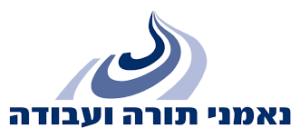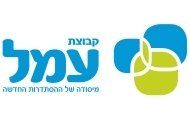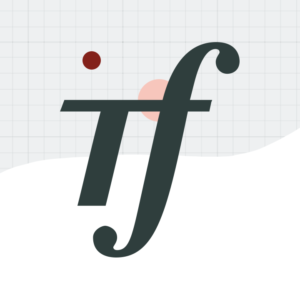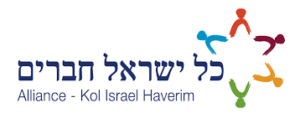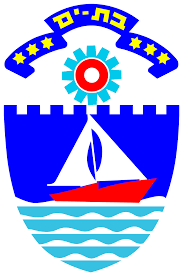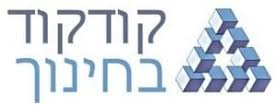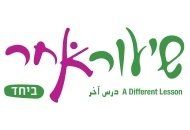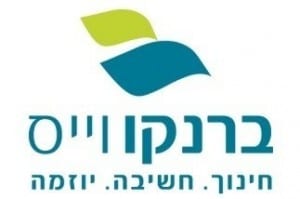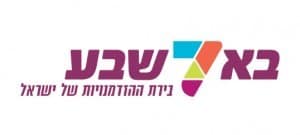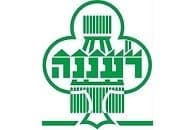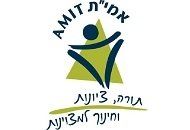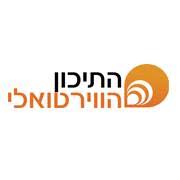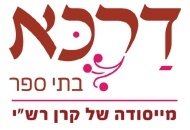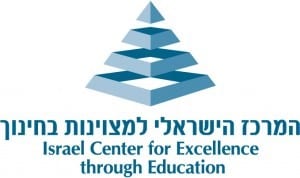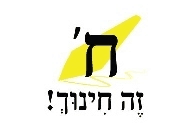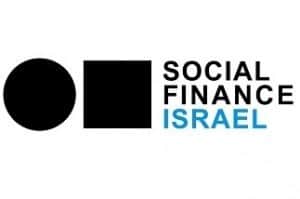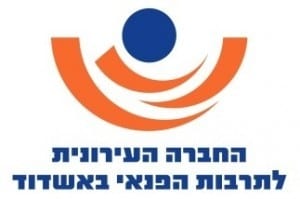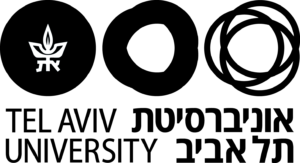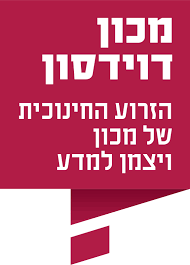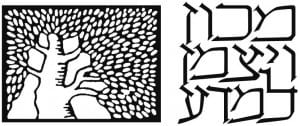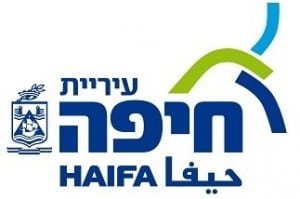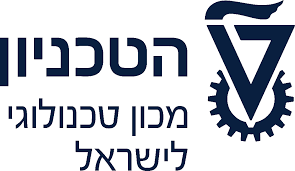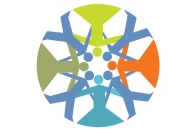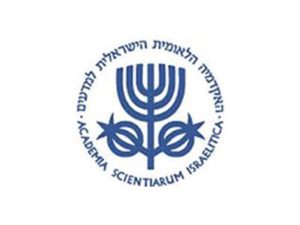The overall decline in Israel in the number of high school students matriculating with mathematics and science majors has been felt even more keenly in the national religious sector. Testimonies from teachers point to a wider spectrum of unique factors adding to the negative trend in the religious education system. They stress that the student-body […]
Of all high school physics students in Israel, only 35% are girls. Similarly, the dropout rate for female students from the advanced track in mathematics is double than that of male students. There are many reasons for this phenomenon; including differences in the level of support from parents, schools advisors and teachers, as well the […]
The Trump Foundation is unique in the sense that it is highly concentrated to achieve a very specific measurable goal – to improve teaching so that more students graduate their high school studies with mathematics and science majors. The foundation’s portfolio reflects this focus, and although each project acts independently, they all share the same […]
Female students make up less than third of the student body of Physics and Computer Science in Israeli high schools and they constitute a minority in the advanced tracks in Mathematics. In disadvantaged areas this phenomenon is even greater, since schools tend to focus on the weaker students. Girls who have the potential to graduate […]
The city of Bat-Yam is located just south of Tel Aviv, and is home to 130,000 residents. The city has 9 secondary schools, which serve approximately 6,000 students. Over the years, the city has chosen to focus on the needs of its weaker students, aiming to improve their overall academic success and eligibility for matriculation, […]
The teaching profession in Israel lacks effective personnel management and long term planning, which are vital for retaining excellent teachers in the teaching profession; providing them with professional development; identifying and filling position openings, and integrating new teachers into schools. However, in Israel teachers are typically treated as if supply was much greater than demand, […]
In 2013 the foundation approved a three-year grant to Shiur Acher to conduct a pilot program aimed to integrate high tech employees on a voluntary basis as teaching assistants for mathematics and science teachers in secondary schools. The goal was to assist teachers of the sciences in junior high schools to prepare and encourage more […]
In recent years, fewer Israeli students are choosing the advanced Mathematics and Science studies in high school and many who do, eventually drop-out due to learning difficulties. Despite strong evidence that the quality of teaching is the main influence on student motivation and achievement, teachers are often not trained and sometimes are not encouraged to […]
Over the last 25 years, Israel’s education policy has been to expand access to higher education. The state supported the establishment of regional academic colleges and allocated them budgets to incorporate a significantly larger cohort of students. As a result, the percentage of undergraduates grew from 23% in 1990 to 48% in 2014, making Israel […]
Be’er Sheva, the southern city known as the “capital of the Negev”, is one of the largest cities in the country, with 200,000 residents. It has 14,500 students enrolled in 17 secondary schools (three of which do not prepare their students for matriculation examinations). In 2015, 9.2% of students took the 5-unit mathematics matriculation, meaning […]
The city of Ra’anana is located in the center of the country with a population of over 70,000. The city’s secondary schools are divided into nine middle schools and seven high schools, which serve some 6,000 students. Ra’anana is known as a city that offers its residents a high level of education and provides them […]
Amit is a long-established school network chiefly active in Israel’s national-religious sector. It operates some 100 educational institutions, including 50 secondary schools. Currently, the network is preparing to launch a new pedagogic center (called ‘Gogia’) that will provide schools in the network with support to develop their own coherent instructional system compatible with their individual […]
In Israel there are a number of excellent public schools that have risen above the difficulties they face to succeed. In these high caliber schools, students are not chosen by selection criteria and the schools’ funding and teaching corps is standard in comparison with others. They manage to lead their students to success, sometimes against […]
The Virtual High School for Advanced Level Mathematics and Physics was established two years ago, as a solution for highly motivated students whose schools do not offer five units of mathematics or physics for matriculation. The foundation provided a grant of 7 million shekels towards the first two years of development (out of four), while […]
Darca is a new school network, established in 2010 by the Rashi Foundation in partnership with Alliance and the Youth Renewal Fund. This academic year the network has 23 secondary schools in the periphery of Israel, attended by more than 12,000 students. Only 11% of its matriculating graduates complete 5 units of mathematics, and 10% […]
In recent years, there is an increasing shortage of chemistry teachers, particularly in the Jewish sector, and as a result there is a decline in the number of high schools which offer chemistry studies. Recent research has revealed that the average age of chemistry teachers in Israel is 51 and therefore the shortage is expected […]
Physics is not taught as a separate subject in Junior High School in Israel, but as one component of a general sciences subject. Most science teachers in Junior High schools are not trained to teach physics and do not have an academic background in physics, and so naturally, physics content is somewhat neglected by most. […]
The great efforts being made to identify and train a new generation of mathematics and science teachers serve no purpose, if these people later decide not to work in the teaching profession, or if they leave teaching soon after they begin. Data shows that only about 60% of trainee teachers are eventually integrated into the […]
Three years have passed since the Trump Foundation was established, and our portfolio of grants and projects is emerging and developing. With dozens of initiatives, our partner organizations are tackling a mutual goal of ensuring high quality instruction of mathematics and the sciences in order to increase the number of excelling students. We work with […]
The social protests in Israel of summer 2011 revealed public dissatisfaction with the state of Israel’s education. Many teachers joined these demonstrations, driven by their frustration with the disconnection between decision makers in education and those practicing in the field. They have pointed to the lack of cooperation between different stakeholders in education, and their […]
A Social Impact Bond (SIB) is an innovative financial mechanism, in which a commitment is made by the government to pay for improved social outcomes that result in public sector savings. This form of financing allows the government to partner with innovative and effective service providers and, if necessary, private foundations or other investors willing […]
The city of Ashdod has set a city-wide goal to increase the number of students who choose, persist and succeed in physics and mathematics at advanced levels. Six years ago, it was decided initially to focus on increasing the number of students graduating with advanced level physics matriculation from 13% to 25%. In order to […]
Finland has one of the world’s highest performing education systems according to the OECD’s international comparative examinations. In Finland, teachers are chosen from the top ten percent of university graduates; the teaching profession is well-respected by the public; and parents and government authorities have confidence in teachers and schools. Teacher training is highly competitive and […]
TED events are transmitted via the Internet to a global audience and distributed on social networks. Several TEDx pants have already taken place in Israel but as of today, none of them have focused on teachers and quality teaching. The Davidson Institute for Science Education is the educational arm of the Weizmann Institute of Science. […]
Physics teaching in Israel is in crisis due to a decline in the number of teachers and low demand for the subject by students. It is a common phenomenon in Israel that Physics classes are very small, targeting only the most talented students in the school. Physics is a particularly challenging subject, which demands high […]
Seven years ago, the municipality of Haifa embarked on a city-wide program designed to prevent an emerging decline occurring nationwide in the number of high school graduates of 5-unit mathematics and physics. Haifa, which typically excels in these areas, set a goal of further increasing the number of graduates by 25%, and to do so […]
The Jerusalem District of the Ministry of Education comprises 55 high schools in various cities, including Jerusalem, Beit Shemesh, Ma’aleh Adumim, Modi’in and the West Bank settlements. In 2013 only 553 out of the 3,904 students in the District who sat for mathematics matriculation exams took the five-unit exam. According to reports from the district, […]
Mathematics teachers in secondary schools teach an average of 20-25 lessons per week. They typically plan their lessons in isolation and are not likely to share their work with others. The Center for Mathematics Education at the Technion believes that by bringing together excellent Mathematics teachers and utilizing technology, this lack of sharing can be […]
The advancement of Physics teaching in secondary schools is a priority for the foundation’s philanthropic activity. The ultimate goal is to facilitate an increase in the number of students enrolled in advanced learning tracks. In order to do this, it is necessary to expand the community of Israel’s 850 Physics teachers, to develop their teaching […]
The Trump Foundation has adopted a strategy to nurture the clinical skills of mathematics and science teachers in Israeli secondary schools in order to help them increase the number of students choosing, persevering with and succeeding at high level matriculation in these subjects. Many of the foundation’s grantees work to improve teaching quality in different […]

